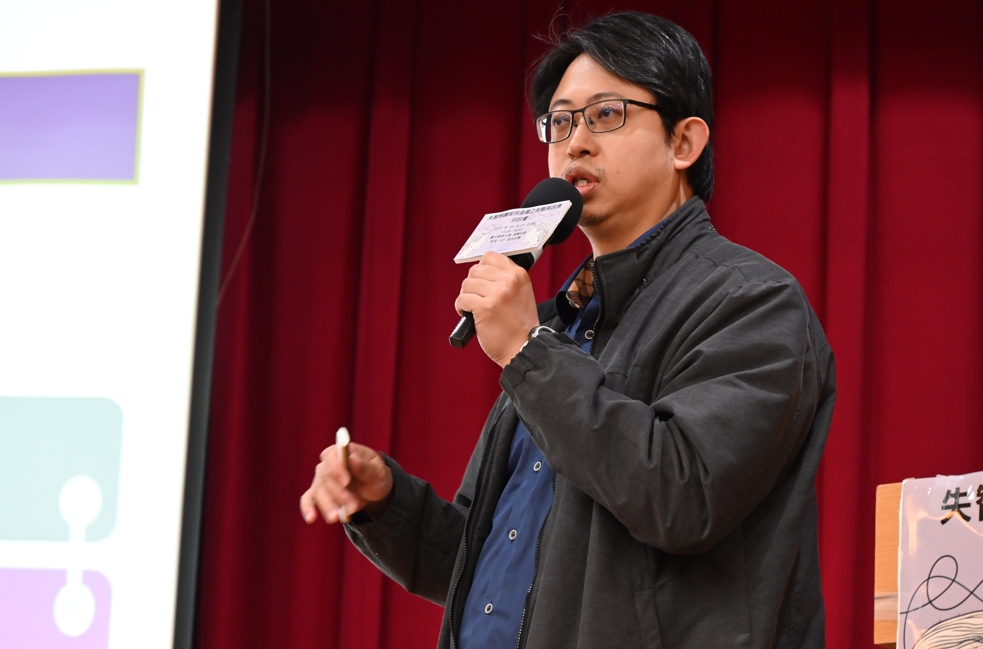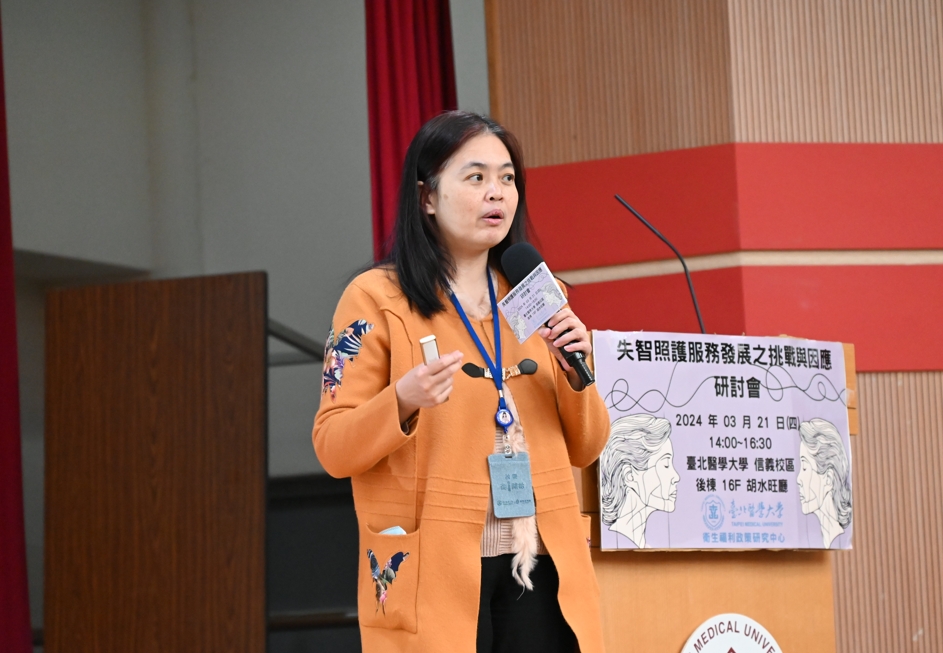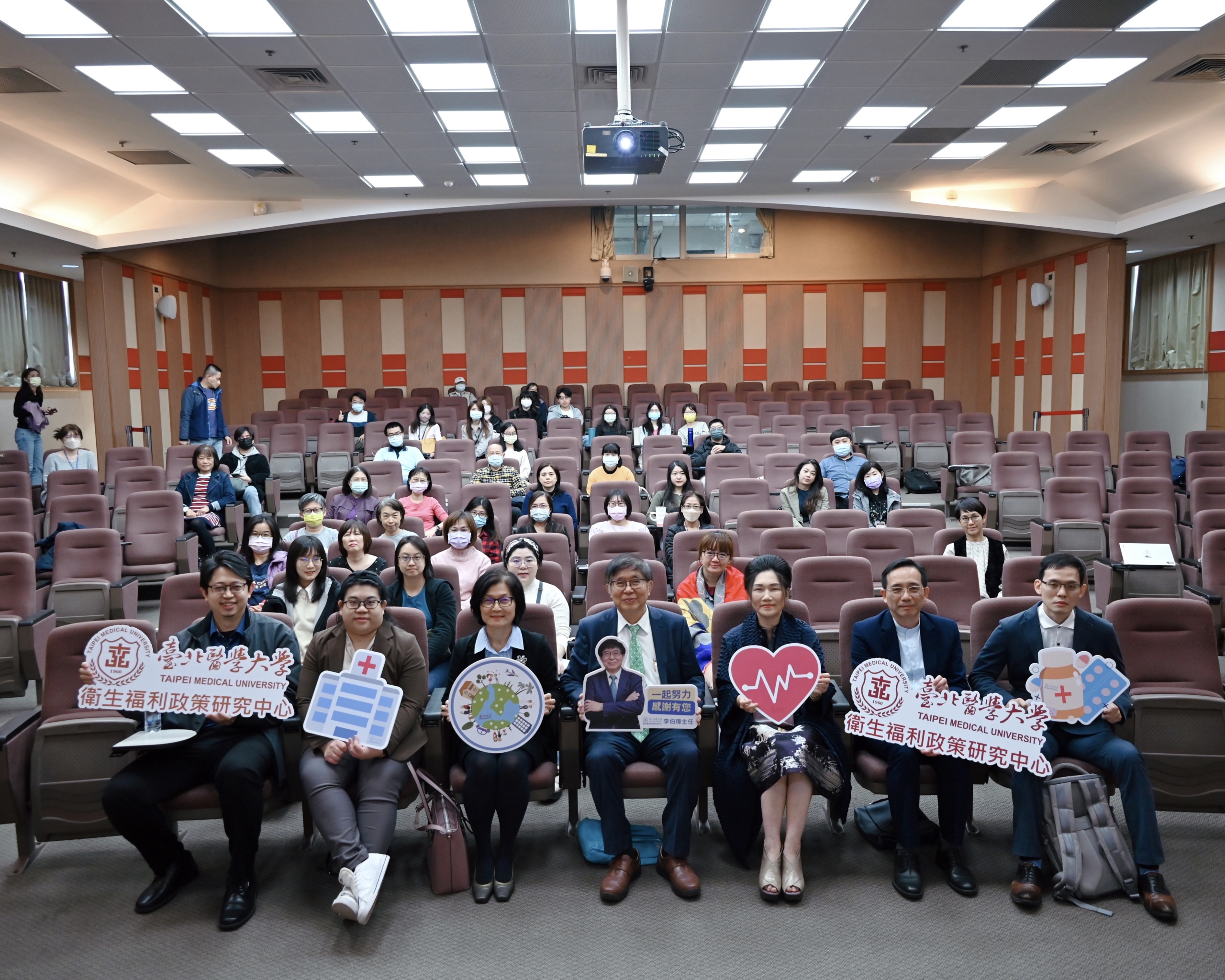【Post-Event Report】Conference on Challenges and Responses in the Development of Dementia Care Services (Part 2)

Dr. Chen Hong-Ru shared the challenges of dementia care from the perspective of urban hospitals during his speech. Dr. Chen pointed out that interdisciplinary communication and coordination are among them. Different departments are busy with their own tasks, requiring more time and effort to coordinate effectively. Additionally, workload among professional staff is a challenge, particularly regarding disease certification, where tasks need to be divided, but the workload continues to increase.
Another challenge is the implementation of education and training. Dr. Chen mentioned that despite offering numerous courses, people’s capacity to absorb information is limited, and there are trust issues regarding online courses. Moreover, applying learned knowledge to caregiving work is also a challenge. Safety issues are also highlighted, especially concerning the safety risks posed by patients’ agitation and the appropriate use of multiple medications.
During the speech, Dr. Chen emphasized the importance of dedicated space and a friendly environment for dementia care. He suggested providing dedicated spaces for dementia patients and establishing a friendly environment to enhance the quality of care. These measures will help improve the quality of care and the quality of life for dementia patients.
Dr. Wu Shan-Hung, Director of the Traditional Acupuncture Department at Taipei Medical University Hospital, discussed “The Application and Challenges of Traditional Chinese Medicine Care in Dementia Care.”

Dr. Wu Shan-Hung pointed out in his speech that treating dementia patients presents numerous challenges, particularly as the condition progresses, leading to issues such as memory decline, psychiatric symptoms, hallucinations, and auditory hallucinations. The role of traditional Chinese medicine (TCM) in this context is to slow down the progression of symptoms, reduce patient discomfort, and enhance their quality of life.
Dr. Wu further introduced the treatment methods of TCM in dementia care, including Chinese herbal medicine, acupuncture therapy, and auricular therapy. These methods can improve patients’ cognitive function, emotional status, and alleviate symptoms such as anxiety and hallucinations. He emphasized the personalized nature of TCM treatment, tailoring treatment plans according to the specific conditions of each patient, and provided evidence and case studies to demonstrate the effectiveness of TCM in dementia treatment.
In addition to hospital treatment, Dr. Wu also mentioned the role of TCM in community care. He advocated for the establishment of TCM care institutions in communities to provide more convenient services for dementia patients and their families. At the same time, he stressed the importance of communication and cooperation between physicians, communities, and families to ensure that patients receive comprehensive care and support.


Through this seminar, we have gained a profound understanding of the challenges facing dementia care services, while also identifying key measures to address these challenges. The government should strengthen collaborative efforts to promote the development of community care networks, enhance early screening and diagnostic mechanisms for dementia in hospitals, promote the application of traditional Chinese medicine therapy, and support home-based care, as well as fully leverage technological applications. These initiatives will help improve the quality of life for dementia patients and their families, alleviate caregiving stress, and lay the foundation for a more caring and supportive social environment. We look forward to the collective efforts of the government, healthcare institutions, community organizations, and society as a whole to provide better care and support for dementia patients and their families, enabling them to lead fulfilling lives.


